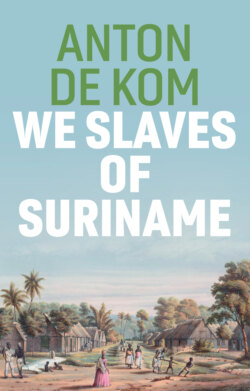Читать книгу We Slaves of Suriname - Anton de Kom - Страница 18
“Race” and Class in Colonial Surinamese Society
ОглавлениеOne of the reasons De Kom’s work inspires so many people is that he was the first Surinamese writer to make a razor-sharp analysis of how racism and class functioned in Surinamese colonial society. Even after July 1, 1863, formerly enslaved people, along with indentured workers who had recently arrived in the country, were still doing the demanding physical labor for the benefit of the white colonial elite and large companies. De Kom saw discrimination against indentured workers from what were then the Dutch East Indies and British India and in favor of European immigrants. He also made it clear that employers were exploiting indentured workers by persuading them, “under false pretenses, to sign contracts that keep wages low and working conditions poor in Suriname and perpetuate the old slave mentality” (p. 163).
He also provided his readers with a visceral understanding of the wretched and inhumane circumstances under which the indentured workers and formerly enslaved people were practically forced to work for meager wages on coffee and sugar plantations and as “balata bleeders” deep in the Surinamese rainforest. De Kom describes how the treatment of Black and brown laborers contrasted with that of a group of white German laborers who settled in the colony in 1897. The difference is shocking: many of the Black and brown indentured workers did not survive the voyage to Suriname, because of “malnourishment, a lack of fresh air, and filthy berths” (p. 163).
